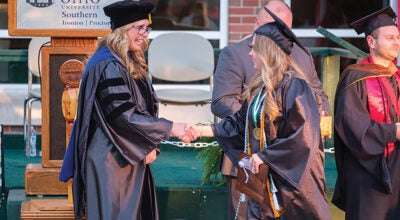United Way announces common good forecaster
Published 10:19 am Tuesday, June 30, 2009
HUNTINGTON, W.Va. — United Way of the River Cities announced today that United Way of America and American Human Development Project (AHDP) have created the Common Good Forecaster, a Web-based tool that forecasts how conditions might change in a community if educational outcomes were to improve.
The tool can drill down to the county level for communities across the country.
The Common Good Forecaster illustrates that if all adults in Cabell County moved up one education level (those without high school would graduate, those with a high school degree would get some college and those with some college would earn a four-year diploma), the unemployment rate would drop by 1.5 percent in Cabell County, and personal median income would increase by 31 percent in Wayne County.
While one might expect to see these effects as the result of increased education, there are other less obvious effects as well.
Improved education levels can add as much as 2.2 years to one’s life expectancy in Lincoln County and increase the percent of residents voting by 12.3% in Lawrence County. In fact, even something as seemingly disconnected as the murder rate would be affected.
It would drop by 4 fewer murders per 100,000 residents in Cabell County.
“The Common Good Forecaster is a great tool to illustrate the connections between education and a quality life here in our region – healthier individuals, kids who are more fit, reduced crime and brighter futures for our young people,” said Laura Gilliam, Executive Director.
“If we take decisive action to make sustainable progress in education a priority, we will advance the common good for everyone.”
Last year, United Way announced a bold goal to cut high school dropout rates in half by 2018.
The Common Good Forecaster, which will help United Way mobilize communities to action by demonstrating the future impact of improving education today, is part of United Way’s new plan for making progress toward the 10-year goal.
Other strategies employed in the region include mentoring youth, early care and education, and life skills training.
United Way of the River Cities and its partners agree that this work will require innovative new strategies and partnerships across all sectors —businesses, nonprofits, governments and individuals.
For more information, visit www.liveunited.org





